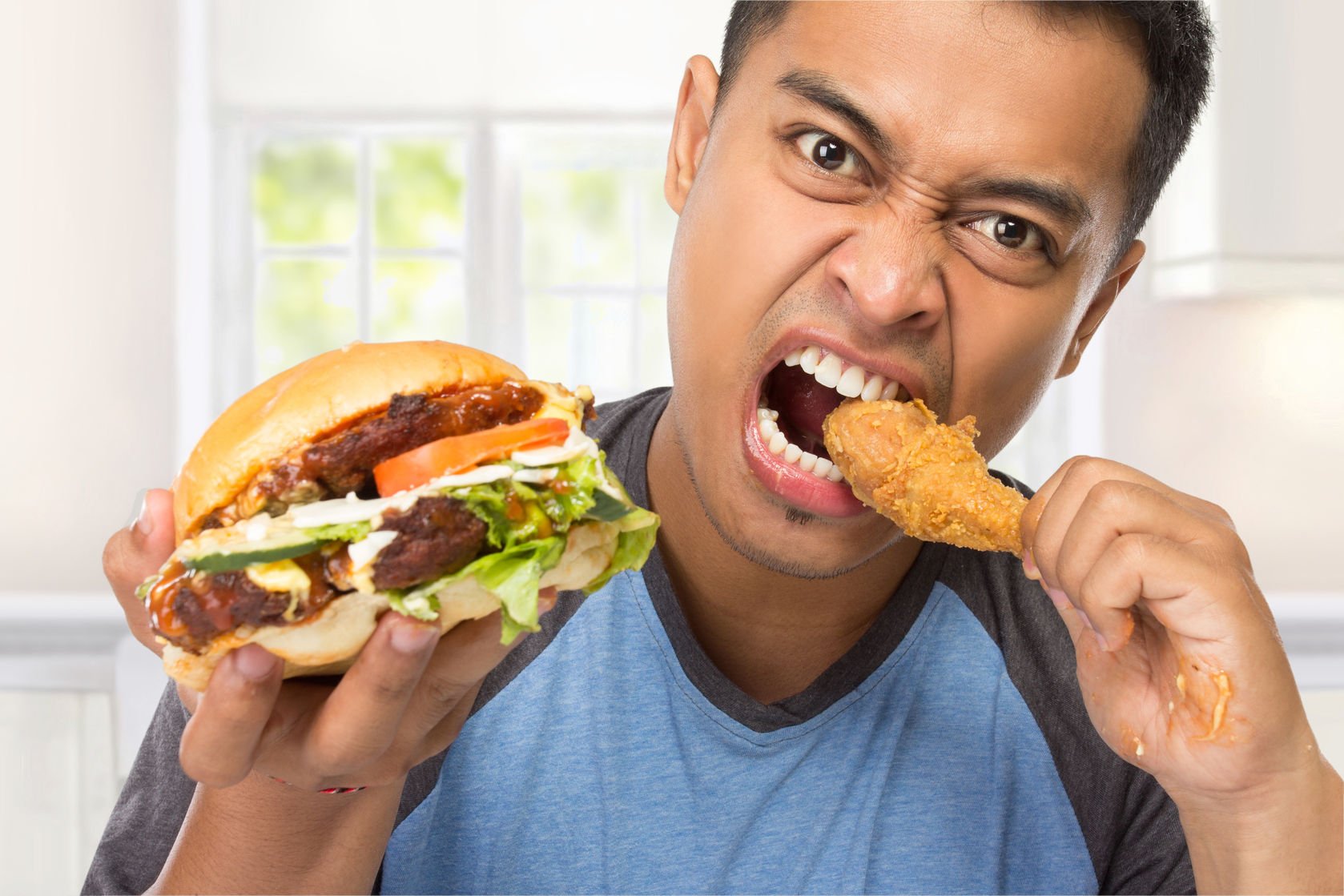Detail Author:
- Name : Mr. Deontae Hermiston Jr.
- Username : estefania75
- Email : oborer@hackett.com
- Birthdate : 1973-11-20
- Address : 603 Rubye Light Apt. 387 South Tyson, ID 20618-8994
- Phone : +1-678-565-6409
- Company : Ziemann, Schaefer and Feest
- Job : Home Entertainment Equipment Installer
- Bio : Et unde recusandae unde veritatis sed sunt. Quidem et adipisci sapiente nam. Rerum assumenda porro et. Reiciendis quidem aut nihil officia maxime omnis error.
Socials
facebook:
- url : https://facebook.com/quincy_xx
- username : quincy_xx
- bio : Omnis velit laudantium sed qui. Non magni distinctio voluptate similique.
- followers : 5877
- following : 981
linkedin:
- url : https://linkedin.com/in/quincy.crona
- username : quincy.crona
- bio : Sunt sint aut molestiae totam earum.
- followers : 5967
- following : 125
tiktok:
- url : https://tiktok.com/@quincy_crona
- username : quincy_crona
- bio : Ea non illo suscipit laboriosam et sed. Beatae quas id molestias modi.
- followers : 5051
- following : 359
Considering something truly outside the usual dinner routine, like, say, the idea of eating a mermaid, naturally brings up a whole host of questions about our bodies and how they react to what we put into them. It's almost as if our physical selves have their own set of rules, you know, for handling all sorts of nourishment.
This kind of thought experiment, in a way, really helps us appreciate the delicate balance our systems maintain every single day. We tend to take for granted how our insides process everything from a simple apple to, well, something far more fantastical. But, actually, the principles of what makes us feel good, or not so good, remain pretty consistent, regardless of the ingredients.
So, too it's almost about understanding that our physical well-being is deeply tied to our dietary choices, no matter how ordinary or, indeed, how incredibly out of the ordinary they might seem. It's a reminder that what we take in can truly shape our health, for better or for worse, and that paying attention to our body's signals is always a smart move.
Table of Contents
- What Are the Real Consequences of an Unconventional Diet?
- How Does One Prepare for Eating a Mermaid?
- The Body's First Response to Eating a Mermaid
- Does Eating a Mermaid Impact Your Daily Activities?
- Monitoring Your Body After Eating a Mermaid
- What If Your Body Reacts Poorly to Eating a Mermaid?
- Seeking Help After a Challenging Meal
- What Can We Learn from the Idea of Eating a Mermaid?
What Are the Real Consequences of an Unconventional Diet?
When we consider truly unusual food experiences, like the theoretical act of eating a mermaid, it brings into sharp focus the very real challenges some people face with how they approach food generally. There are, you know, certain health situations that deeply affect a person's physical state and their mental well-being. These sorts of conditions often involve a distorted perspective on food itself. It's a bit like having a complex relationship with something that's supposed to be straightforward nourishment. Such circumstances can lead to a lot of difficulties, making it hard for someone to maintain good health. The way one views and interacts with food can, in fact, become a source of considerable distress, rather than a simple part of daily life. This is why, arguably, thinking about extreme dietary choices, even imaginary ones, can help us appreciate the delicate balance involved in our regular eating habits.
How Does One Prepare for Eating a Mermaid?
If one were to, hypothetically, consider eating a mermaid, the question of preparation would naturally come up. This is similar to how people approach managing conditions like diabetes, where the main idea is simply to consume the most wholesome foods in suitable quantities and to stick to a consistent schedule for meals. It's about setting up your system for success, you know, no matter what you're putting into it. A generally sound way of living, with a focus on good food choices, can really make a profound impact on your physical condition. There are, for instance, many wonderful health-promoting foods that, when eaten regularly, contribute to overall wellness. The food you take in each day, in fact, possesses the ability to alter your health status significantly. It's also worth remembering that what you eat can influence your chances of developing certain serious health issues, too it's almost a protective measure. So, preparing for any meal, even a fantastical one, means thinking about balance and consistency.
The Body's First Response to Eating a Mermaid
After consuming something truly unique, like the conceptual act of eating a mermaid, your body's initial reactions are, in some respects, quite predictable, even for something so out of the ordinary. Things like burping or passing intestinal gas, which is also called flatus, are perfectly normal and happen to everyone. These are just natural bodily processes, after all. However, if these occurrences become excessive, or if they come along with a feeling of puffiness, discomfort, or an expansion of the stomach area, then, you know, it can sometimes get in the way of feeling comfortable. It's a sign that your digestive system is perhaps working overtime or reacting to something it's not quite used to. This kind of response, basically, highlights how sensitive our internal systems can be to new or unusual inputs. It really shows us that even the most adventurous meal might come with some immediate physical feedback, which is, in fact, just your body communicating.
Does Eating a Mermaid Impact Your Daily Activities?
When it comes to how our food choices interact with our physical activity, and indeed, our general well-being, everyone, arguably, experiences things a little differently. This is certainly true if one were to consider the profound impact of eating a mermaid. What works for one person might not be the same for another. So, it's really important to pay close attention to how you're feeling during your physical efforts and to notice how your overall capacity to perform is changed by what you've consumed. Your body, you know, is pretty good at sending signals. If you're feeling sluggish or surprisingly energetic after a particular meal, that's information worth holding onto. This connection between what you eat and how you move is, in fact, a very personal one. It means that even the most unusual of meals, like the thought of eating a mermaid, would have a unique set of repercussions for each individual's physical output and how they experience their day.
Monitoring Your Body After Eating a Mermaid
Understanding why, when, and how to check your internal body levels, like blood sugar, is, basically, a very important part of looking after yourself, especially if you've consumed something truly out of the ordinary, such as the idea of eating a mermaid. Knowing when to perform these checks, how to use the measuring tools, and other related details, gives you, you know, a clearer picture of what's happening inside. It’s about keeping a watchful eye on your body’s chemistry, ensuring it stays within a comfortable range. This kind of regular observation helps you understand how your system is processing new or different inputs. It’s a way of being proactive about your physical state, allowing you to react quickly if something seems amiss. So, too it's almost like having a dashboard for your own internal workings, providing essential feedback on how your body is handling even the most unique dietary adventures.
What If Your Body Reacts Poorly to Eating a Mermaid?
In people who manage conditions where their blood sugar needs careful attention, certain treatments, like insulin or other preparations used to bring down blood sugar levels, can sometimes lead to a sudden drop in blood sugar after a meal. This is called hypoglycemia. If one were to, say, experience this after eating a mermaid, it would certainly highlight the body's delicate balancing act. A simple adjustment to the amount of the preparation might be needed to avoid such a situation. It's a reminder that our bodies are very responsive to what we introduce into them, and sometimes, you know, even the most beneficial interventions can have unintended side effects. This kind of reaction, basically, underscores the importance of personalized care and fine-tuning, ensuring that your system remains stable and comfortable, especially after an unusual dietary event. It's all about finding that sweet spot for your internal chemistry.
Seeking Help After a Challenging Meal
Depending on the specific challenges one might face with their food choices, and the particular physical signs that show up, getting assistance might involve a combination of different approaches. If, for instance, the conceptual act of eating a mermaid were to lead to significant health issues, the path to feeling better could include various forms of discussion-based support, practical information about what to eat, and sometimes, you know, specific medications. It's a comprehensive way of addressing the various aspects that contribute to a person's well-being. This multi-faceted approach recognizes that these kinds of situations are often complex, requiring different types of help to get things back on track. It means, basically, that there isn't just one single answer, but rather a collection of methods that can be put together to provide the most effective support. So, too it's almost like building a personalized plan for recovery, tailored to the unique needs of the individual.
What Can We Learn from the Idea of Eating a Mermaid?
The whole concept of eating a mermaid, as unusual as it sounds, really serves as a powerful way to think about how our bodies handle what we consume. It brings up questions about our digestive processes, how our blood sugar behaves, and the overall impact of food on our physical and mental state. It's about recognizing that what we put into our systems has real effects, whether it's something mundane or something completely fantastical. This thought exercise, you know, basically encourages us to be more mindful of our eating habits and to understand that our bodies are constantly reacting and adapting. It's a reminder that good health comes from making thoughtful choices about nourishment and being aware of how our unique systems respond. So, in a way, the mermaid becomes a symbol for the importance of paying attention to our health through what we eat.
This article explored the conceptual implications of "eating a mermaid" through the lens of human health and bodily responses. It touched upon how unusual dietary choices might relate to challenges in thinking about food, the importance of preparing one's body through balanced eating, and the immediate digestive reactions that could occur. We also looked at how such an extreme meal might affect physical activity, the necessity of monitoring internal body chemistry like blood sugar, and the potential for adverse reactions such as hypoglycemia. Finally, the discussion covered the various forms of support and treatment that might be needed if such an unusual consumption led to health issues, emphasizing a comprehensive approach to well-being.
- Deion Sanders Shedeur Sanders
- Antm Series 1
- Kinders Burger Sauce
- Captain That Died On Deadliest Catch
- Wyoming Woman Shoots Kids And Herself


